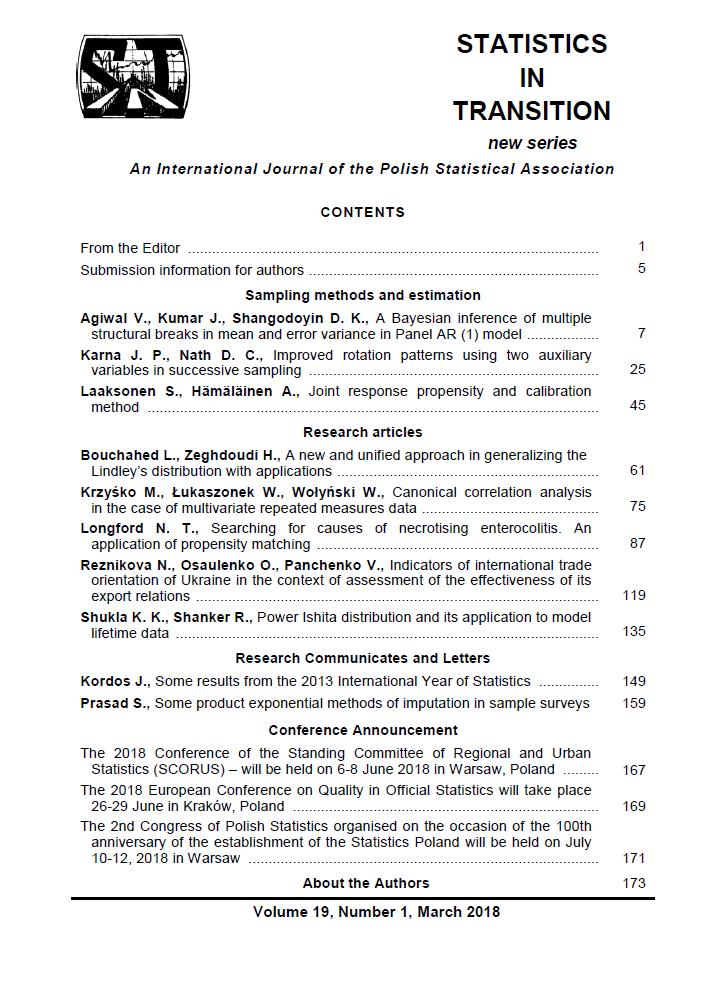ARTICLE
ABSTRACT
In this paper, a product exponential method of imputation has been suggested and their corresponding resultant point estimator has been proposed for estimating the population mean in sample surveys. The expression of bias and the mean square error of the suggested estimator has also been derived, up to the first order of large sample approximations. Compared with the mean imputation method, Singh and Deo (Statistical Papers (2003)) and Adapted estimator (Bahl and Tuteja (1991)), the simulation studies show that the suggested estimator is the most efficient estimator.
KEYWORDS
imputation methods, bias, mean square error (MSE), efficiency.
REFERENCES
BAHL, S., TUTEJA, R. K., (1991). Ratio and Product type exponential estimator.Journal of Information and Optimization Sciences, 12 (1), pp. 159–164.
MADDALA, G. S., (1977). Econometrics. McGraw Hills Pub. Co., New York.
MURTHY, M. N., (1967). Sampling theory and methods. Statistical Publishing So ciety, Calcutta, India.
PANDEY, B. N., DUBEY, V., (1988). Modified product estimator using coefficient of variation of auxiliary variable. Assam Stat. Review, 2, pp. 64–66.
PRASAD, S., (2016). A study on new methods of ratio exponential type impu tation in sample surveys. Hacettepe Journal of Mathematics and Statistics,DOI:10.15672/HJMS.2016.392.
PRASAD, S., (2017). Ratio exponential type imputation in sample surveys. Model Assisted Statistics and Application, 12 (2), pp. 95–106.
SINGH, S., DEO, B., (2003). Imputation by power transformation. Statistical Pa pers, 44, pp. 555–579.
SINGH, S., (2003). Advanced sampling theory with applications. Klumer Academic Publishers, the Netherlands, Vol. 1.
SWAIN, A. K. P. C., (2013). On some modified ratio and product type estimators Revisited. Revista Investigacion Operacional, 34 (1), pp. 35–57
